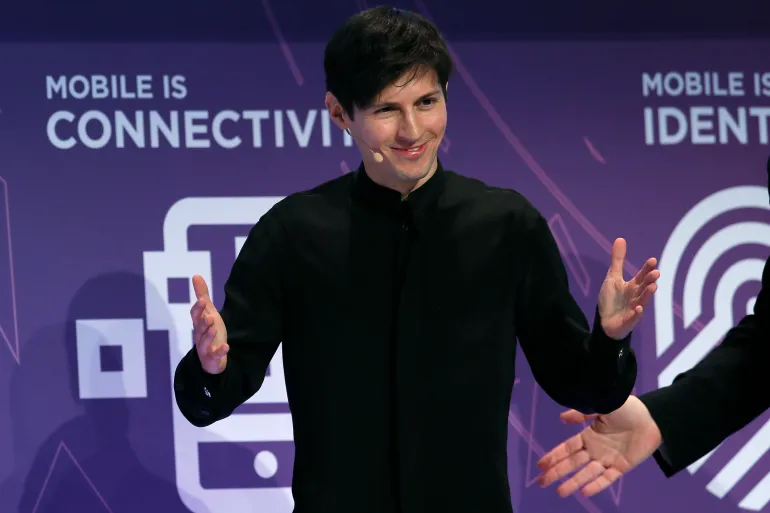The Big Debate Over Digital Freedom
Hey there! Have you heard about the recent news involving Pavel Durov, the CEO of Telegram? Pavel Durov was detained in France, and this has caused quite a stir around the world. The United Arab Emirates (UAE) has also weighed in on this situation, adding its voice to the debate. But why was Durov detained in the first place, and why is the UAE getting involved? This is a big story because it touches on important topics like digital freedom, privacy, and how different countries view the power of social media apps like Telegram. Let’s break it all down and see what’s happening! Telegram CEO
Who Is Pavel Durov, and What Is Telegram?
First, let’s get to know Pavel Durov and his company, Telegram. Pavel Durov is a tech entrepreneur from Russia who co-founded Telegram, a popular messaging app. Telegram has known for its strong focus on privacy and security. Unlike some other messaging apps, Telegram allows users to send encrypted messages, which means only the sender and receiver can read them. This makes Telegram very popular with people who care about their privacy, but it also raises concerns for some governments. They worry that bad actors might use Telegram to communicate secretly. This is part of the reason why Pavel Durov and Telegram have found themselves in the spotlight.
Why Has Durov Detained in France? Telegram CEO
Now, let’s talk about why Pavel Durov has detained in France. The exact reasons aren’t entirely clear, but it seems to be related to concerns over Telegram’s use and how it operates. Some countries, including France, have worried that Telegram could used for illegal activities because of its strong privacy features. They may have detained Durov to question him about how Telegram have used and what steps the company has taking to prevent misuse. It’s important to note that being detained doesn’t mean Durov has done anything wrong; it just means the authorities want to investigate further.
The UAE’s Position: Supporting Digital Freedom?
So, where does the UAE come in? The UAE has recently spoken out about Durov’s detention, expressing concerns over what this could mean for digital freedom and privacy. The UAE has positioned itself as a supporter of innovation and technology. It has home to many tech companies and startups, and it wants to be seen as a leader in the digital world. By weighing in on Durov’s detention, the UAE seems to be advocating for a more open approach to digital privacy, suggesting that users should be able to communicate freely and securely without too much government interference.
The Debate Over Privacy vs. Security Telegram CEO
This situation brings up a big debate: privacy versus security. On one hand, apps like Telegram have designed to protect users’ privacy by keeping their conversations secure and private. On the other hand, some governments believe that too much privacy can lead to security risks, especially if people use these apps to plan illegal activities. It’s a tricky balance to strike. The UAE’s stance seems to lean more towards protecting digital privacy, but it’s clear that not everyone agrees. France, for example, might prioritize national security and the need to monitor potential threats.
What Could This Mean for Telegram and Other Apps?
What does all this mean for Telegram and other similar apps? If more countries start detaining tech CEOs or demanding more control over these apps, it could lead to big changes in how they operate. For example, some apps have forced to give governments access to private messages or to create backdoors that allow for easier monitoring. This have make people less confident in using these apps if they feel their privacy has not being respected. On the other hand, companies like Telegram might fight back against these pressures to keep their promise of privacy to users. It’s a challenging road ahead for sure!
How Are People Reacting Around the World? Telegram CEO
People around the world have a lot of different opinions about this situation. Some people support France’s decision to detain Durov, arguing that apps like Telegram need to be more transparent about how they have used. They believe that national security should come first. Others agree with the UAE’s stance, feeling that privacy is a fundamental right and that people should be able to communicate without fear of government surveillance. Social media has been buzzing with debates on this topic, with many people discussing what the future of digital communication should look like.
Conclusion: A Complex Situation with No Easy Answers
In conclusion, the UAE’s decision to weigh in on Pavel Durov’s detention by France has added. A new layer to an already complex situation. This story is not just about one person or one app. It’s about bigger questions of privacy, security, and how we use technology in our daily lives. As the debate continues, it’s clear that there are no easy answers. Different countries will have different views, and companies like Telegram will have to navigate these challenges carefully. For now, all eyes are on how this situation will unfold. And what it might mean for the future of digital freedom. Telegram CEO
Inspired by Al-Jazeera News and read more Articles Here, Read Previous Also
